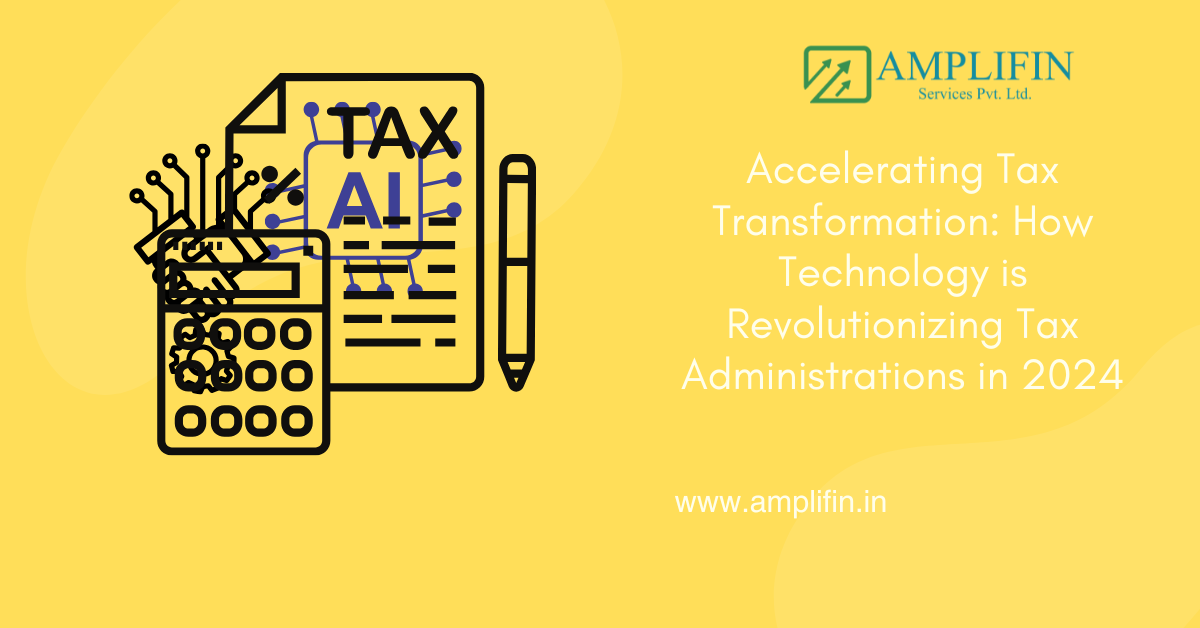The digital economy is driving drastic changes in how tax administrations operate around the globe. From AI-powered analytics to blockchain-based systems, tax technology is revolutionizing every aspect of taxation. This comprehensive guide explores how digital transformation is reshaping tax systems, generating new capabilities, and enabling more efficient revenue collection in an advanced stage of development. Whether you’re a tax professional, policymaker, or business leader, understanding these digitally advanced technologies is crucial for navigating the future of taxation.

How Are Tax Administrations Embracing Digital Transformation?
Tax administrations globally are undergoing a profound digitalisation journey. The emergence of tax technology solutions has enabled tax authorities to streamline processes and improve efficiency. This transformation is particularly evident in how they handle revenue collection and tax compliance in the context of digital taxation.
The adoption of digital technologies accelerated significantly after 2020, partly due to COVID-19’s impact on traditional tax operations. Tax administrations now rely heavily on digital platforms to conduct routine operations and generate insights from tax-related data indicative of compliance trends.
What Role Does Technology Play in Generating Tax Revenue?
Modern tax technology helps generate substantial revenue through improved collection efficiency and reduced tax evasion. Tax administrations use sophisticated algorithms and data analytics to identify potential compliance issues and optimize revenue collection.
The implementation of digital tax systems has helped authorities generate more accurate assessments of tax liabilities. From service tax to income tax, technology plays a crucial role in ensuring proper tax calculation and collection across various sectors, particularly in the goods and services industry.
How Can Tax Technology Transform Compliance Monitoring?
Advanced tax technology enables tax administrations to monitor compliance more effectively. Digital platforms can automatically analyze transactions and identify patterns that might indicate non-compliance. This technological capability has revolutionized how authorities address tax evasion.
The development of sophisticated monitoring systems helps tax administrations establish better oversight of both domestic and international tax matters. These systems generate real-time alerts and reports, enabling quick response to potential compliance issues.
What Impact Does Digital Economy Have on Tax Systems?
The explosive growth of the digital economy has forced tax administrations to adapt their approaches. With increasing digitally-mediated transactions and B2C services, tax systems require new ways to track and assess tax obligations regarding the digital economy.
Tax technology helps authorities address challenges unique to the digital economy, such as characterizing digital services and determining appropriate tax treatment for intangible assets in the finance domain. This has led to the establishment of new tax regimes specifically designed for the digital era and digital taxation.
How Are Tax Administrations Using Technology to Enable Better Service?
Modern tax technology enables tax administrations to provide better services to taxpayers. Digital platforms streamline everything from filing to making payments, while advanced systems generate automated responses to common queries.
The implementation of user-friendly digital services has transformed how tax administrations interact with stakeholders. From individual taxpayers to large enterprise entities, technology enables more efficient and transparent tax-related interactions regarding the digital economy.
What Technological Advances Generate the Most Impact?
Recent technological developments between 2021 and 2023 have significantly transformed tax administration capabilities. Artificial intelligence and 5G technology generate new possibilities for tax monitoring and compliance management.
The adoption of blockchain and advanced analytics helps tax administrations generate more accurate insights and enable better decision-making. These technological advances have particularly impacted how authorities handle international tax matters and cross-border transactions.
How Do Tax Administrations Manage the Digitalisation Journey?
The transformation from traditional to digital tax systems requires careful planning and implementation to address challenges regarding the goods and services in the digital economy. Tax administrations must embrace change while ensuring system stability and stakeholder consultation throughout the digitalisation journey.
Successful digital transformation involves establishing proper infrastructure, training staff, and engaging with various stakeholders. Tax administrations must also generate support from the ecosystem across the globe to ensure sustainable transformation.
What Challenges Do Tax Technologies Address?
Modern tax technology helps address numerous challenges faced by tax administrations. From handling high volumes of digital transactions to ensuring accurate revenue collection, technology enables more efficient operations in the finance domain and characterises the future of taxation.
Tax administrations use advanced systems to generate solutions for complex challenges in both direct and indirect taxation. These technological solutions help authorities establish better control over tax-related activities while reducing administrative burdens.
How Are Businesses Adapting to Digital Tax Requirements?
Enterprises across various sectors must adapt to new digital tax requirements to successfully digitalise their operations and remain competitive in the industry. The implementation of tax technology solutions helps businesses comply with evolving regulations and generate accurate tax reports, especially in light of COVID-19.
From small firms to large corporations, entities must embrace digital transformation in their tax functions. This includes adopting new technologies for tax filing, payment processing, and compliance management.
What Future Developments Can We Expect in Tax Technology?
Advisory firms like PWC and EY’s predict continued technological advancement in tax administration. Future developments may include more sophisticated AI applications, enhanced data analytics capabilities, and improved international tax cooperation platforms regarding the digital taxation landscape.
The reliance on data and digital technologies will likely increase, with tax administrations continuing to generate new capabilities through technological innovation. This ongoing transformation will shape how tax systems operate in the coming years.
Key Takeaways:
- Digital transformation is revolutionizing tax administration globally
- Technology enables more efficient revenue collection and compliance monitoring
- AI and advanced analytics generate new capabilities for tax authorities in the domain of digital taxation.
- Digital economy presents unique challenges requiring technological solutions
- Tax administrations must embrace continuous technological evolution to effectively amend their strategies for the digital landscape.
- Businesses need to adapt to new digital tax requirements
- International cooperation is crucial in the digital tax landscape, especially regarding the digital India initiative, which aims to enhance tax compliance across crores of taxpayers.
- Data analytics plays a vital role in modern tax administration, particularly in the finance domain.
- Technological innovation continues to shape tax systems
- Digital platforms enable better service delivery to taxpayers
